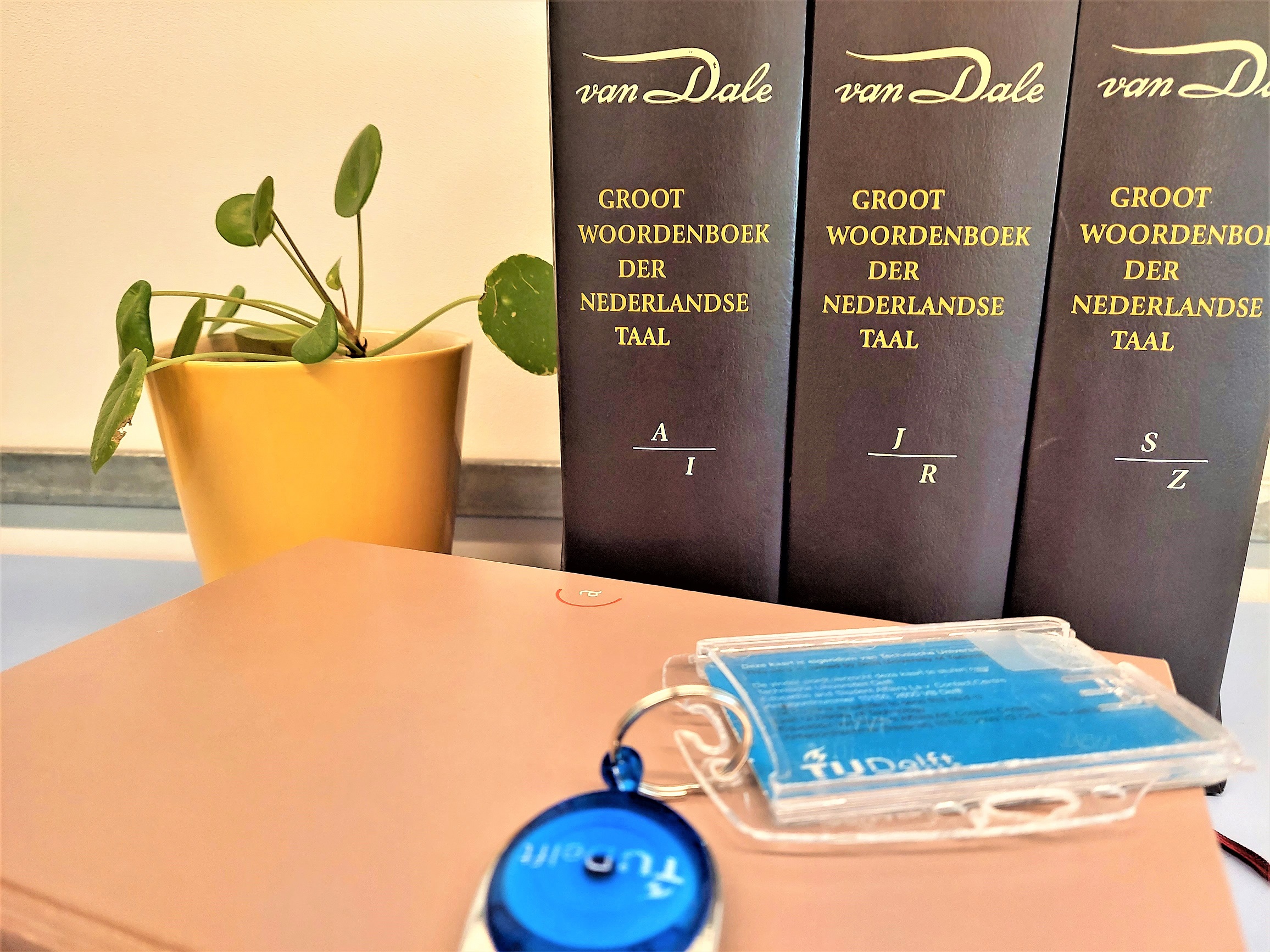To give more international students the chance to learn Dutch, Student Council member Abdelkader Karbache would like to add a MOOC to the current range of courses.
(Photo: Marjolein van der Veldt)
TU Delft is attracting more and more international students, and more of them want to learn Dutch. One of them is Polish master’s student Marta Zapaśnik (Architecture and the Built Environment). She has lived in the Netherlands since September 2021 and is taking a Dutch language course at the Delft Centre for Languages and Academic Skills (ITAV). “It’s important for me to be able to understand the people around me, in shops, on the street, at TU Delft or at work,” says Zapásnik. She sees that it gives her more opportunities and that it makes her feel more self-confident. “I understand important information better, such as messages from the Municipality or other organisations. It also helps me learn more about the culture so that I feel more at home in Delft. I also see that my colleagues are more friendly towards me if I speak Dutch to them.”
ITAV Dutch language teacher Astrid recognises this. “We often hear from our students that learning Dutch helps them feel more connected. There are also more job opportunities the better you master the language.”
Internationalisation
These are some of the reasons why Student Council member Abdelkader Karbache (Lijst Bèta) expects the interest in learning Dutch to increase. “I also see this in conversations with international students and hear this in feedback from study associations.”
Karbache says that Dutch students often unconsciously exclude their international fellow students when they speak Dutch to each other in group projects or at social occasions. “This is one reason to learn Dutch. The international students also think it is important to learn some basic words so that they can do things like order food or fill in a date finder programme.”
He also mentions the theme of internationalisation that is current in the House of Representatives. Internationals are the subject of increasing criticism as they are thought to come here to acquire knowledge and then leave once they finish their studies. “TU Delft could act as more of a connector in integration through doing things like offering more Dutch language courses,” says Karbache.
But he adds that the courses are so popular that they often fill up fast. Karbache is thus thinking about other ways of expanding language training. “You could have a language buddy system where you couple an international student to a Dutch student. Or a ‘language exchange’ where one student learns a language, like Vietnamese for example, while the other learns Dutch.”
On behalf of the ITAV, Van Laar denies that there are insufficient places on courses. “While the interest in our courses remains very high, we have been able to place almost all the students either immediately or in the quarter after they register for a course.”
MOOC
Still, Karbache would like to see TU Delft offering more language courses, “Even though it is not easy given the shortage of qualified teachers.” He believes that a MOOC (massive open online course), an online course in which you can determine your own study pace, could be an answer. “MOOCs are a lot more flexible than a course as you decide yourself when you start and how fast you go.”
To do this, Karbache wants to draw on TU Delft’s Investment Fund. This pot of half a million euros – set up by TU Delft with monies from the basic grant – is for the Student Council to spend on improving the quality of TU Delft education. At the monthly consultation meeting with the Executive Board at the end of March, Vice Rector Magnificus Rob Mudde responded positively to the idea. “I now want to present the ideas to the ITAV to see what we can jointly do.”
Concerns
Van Laar supports the idea of a MOOC. “Since March 2022, anyone at TU Delft could take the Dutch Online Course for Beginners. It is an online, easily accessible familiarity course on the Dutch language. The course starts six times a year and has enough space. Should Karbache see the chance to offer the course as a MOOC – which does not cap the number of students – a lot more people could follow a course at their own pace and this would be a great advantage.”
But there are concerns too, and she would like to discuss these with Karbache. Van Laar sees that students and PhD candidates have limited time to spend on learning the language given their busy schedules. “And learning a language needs a high time investment. If we consider it important that international students and PhD students feel more connected to their surroundings through learning Dutch, on top of language courses, they should also be given the time to master the Dutch language, at least to a certain level.”
Do you have a question or comment about this article?
m.vanderveldt@tudelft.nl


Comments are closed.